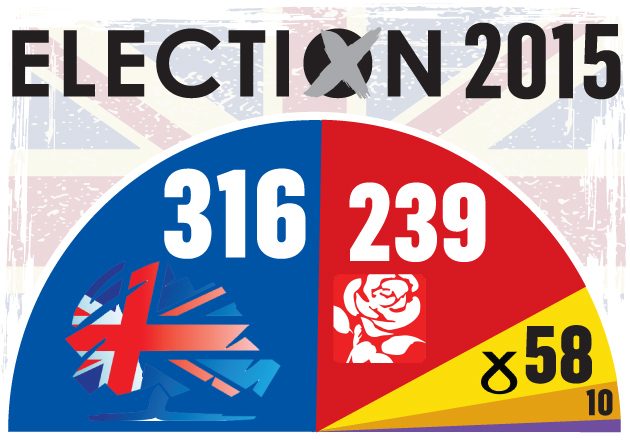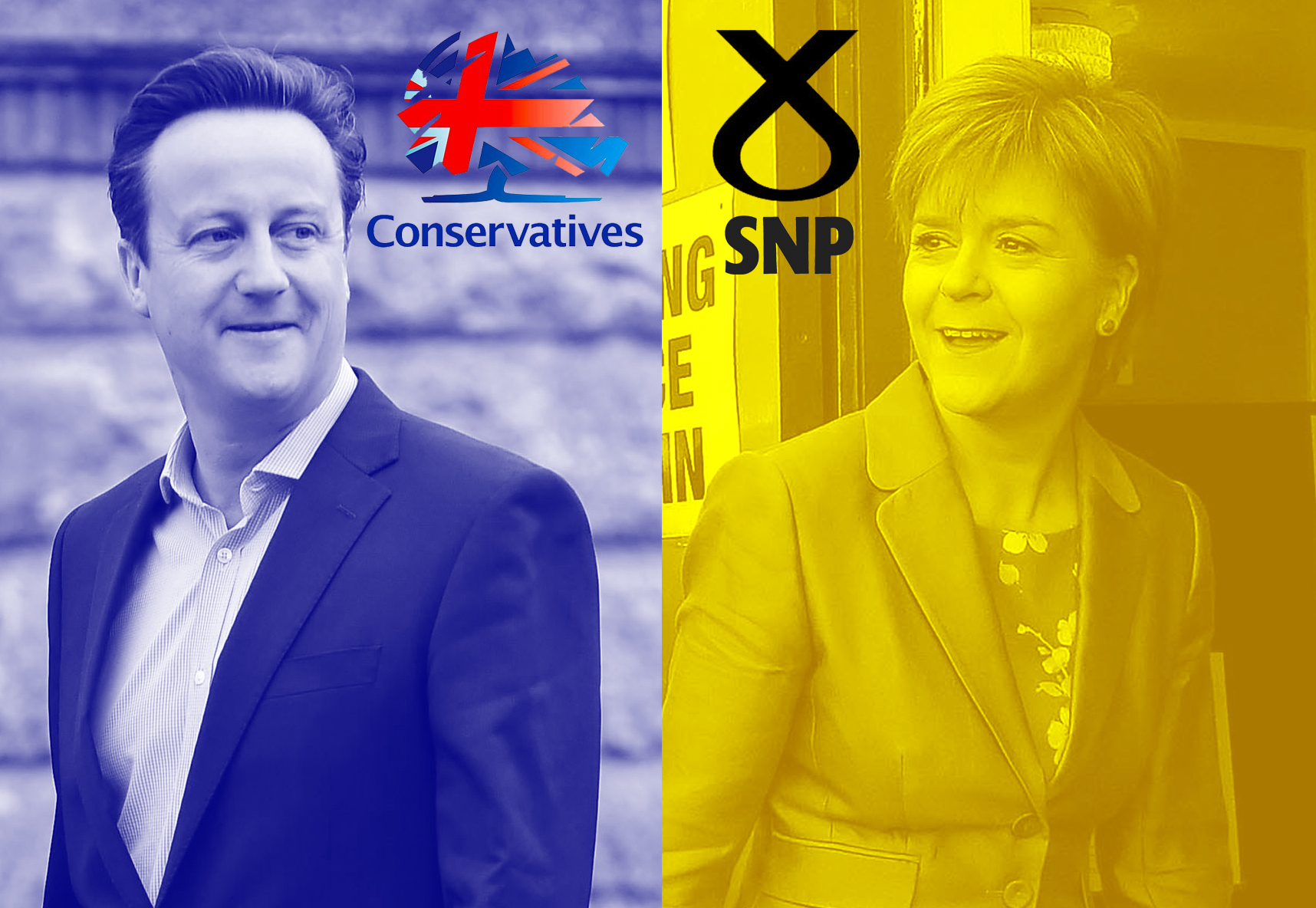The SNP is poised to make history by trouncing Labour in its Scottish heartland and re-drawing the political map.
Exit polls suggested the Nationalists were on course to win all but one of the nation’s 59 seats, while David Cameron’s Conservatives were on the brink of a return to power with 316 seats.
Labour’s hopes of ousting Mr Cameron from 10 Downing Street appeared dashed as the survey put the party way behind on 239 – leaving Ed Miliband’s future as leader in grave doubt.
The forecast for Scotland would represent a humiliating defeat for Labour and end the party’s decades-old connection to the nation.
The Liberal Democrats also faced the embarrassment of slumping from 57 to just 10 seats, with heavyweight figures in the north such as Chief Treasury Secretary Danny Alexander and former party leader Charles Kennedy expected to be among the casualties.
Retiring Gordon MP Sir Malcolm Bruce said “it looks likely” that Alex Salmond would win the seat, while sources close to the former SNP leader said it “looks good”.
Nicola Sturgeon’s party had just six MPs in the last parliament but could now be the third biggest party in the UK , with its prospects transformed in the wake of last year’s independence referendum.
Insiders were also confident about the SNP taking West Aberdeenshire and Kincardine from Lib Dem Sir Robert Smith, wining Aberdeen North from Labour, and holding Banff and Buchan.
However, the first minister attempted to play down the poll findings, saying: “I’d treat the exit poll with huge caution. I’m hoping for a good night but I think 58 seats is unlikely.”
The exit poll defied all the surveys in the run-up to the election, which predicted that the race for 10 Downing Street was neck-and-neck and would go down to the wire.
The Tory tactic of focussing on the supposed threat of a Labour-SNP deal south of the border appeared to have paid off, with the exit poll suggesting Mr Cameron was just 10 seats from a majority and overwhelming favourite to remain as prime minister.
The Conservative leader said he was “quietly pleased” by the poll findings.
However, Labour held the first three constituencies to declare and Shadow chancellor Ed Balls claimed the battle remained tight.
He said: “Even if the exit poll is right, that means the Conservative-Liberal Democrat coalition majority has gone from 72 to zero – David Cameron’s ability to hang on in Downing Street is on a knife-edge and he will have to reach out to get support from the Ulster unionists.
“If the exit poll is wrong just by 10 seats – and all the information is that there are very close fights between Labour and Conservatives in seats right across the country – then suddenly David Cameron won’t be able to get a majority in the House of Commons and it will fall to Ed Miliband as leader of the opposition to then put a Queen’s Speech before Parliament.”
Former Lib Dem leader Paddy Ashdown, meanwhile, promised he would “eat his hat” if his party was reduced to 10.
A source close to Mr Alexander would not be drawn on reports the senior minister was poised to lose his Inverness seat, saying: “Too early. Very tight. Always was going to be difficult. Not heard anything more from the count.”
Derek Mackay, Scottish transport minister and SNP business convener, said: “I think the SNP is probably going to have quite a good night. But 58 feels somewhat high on the optimistic side.”
Conservative chief whip Michael Gove described the exit poll figures as “an unprecedented vote of confidence in David Cameron’s leadership and in particular in the message that we have reinforced throughout this campaign, which is that if people wanted to secure our economic security, they’ve got to make sure that David is in Downing Street”.
He said it was too early to talk about potential post-election deals but if the exit poll proved right, “tomorrow the prime minister will outline the basis on which we can go forward with a secure and stable government in the national interest”.

